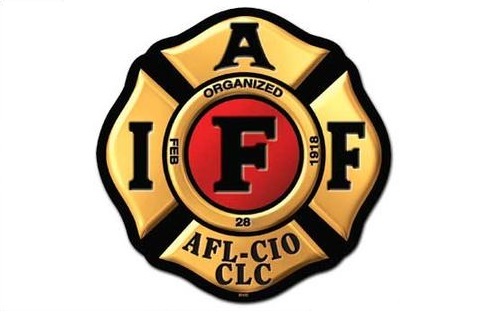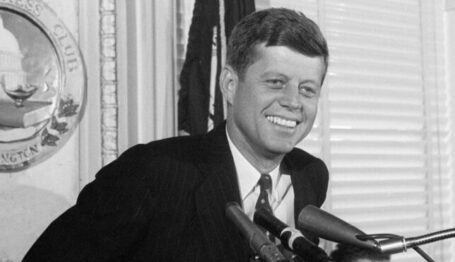Labor Watch
Firefighters Union Allegations Show Need for New Labor Reports
 Source: Wikipedia.
Source: Wikipedia.

The allegations are startling: Edward Kelly, the secretary-treasurer and number-two man in the International Association of Fire Fighters (IAFF), is accusing union president Harold Schaitberger of improperly taking over $1 million in payments from the IAFF’s pension funds.
Side Embezzlement: An Old Story
If the allegations are accurate, it’s hardly the first time that union bosses have used pension funds or other union-controlled financial entities as sources of ill-gotten gains. Teamsters boss Jimmy Hoffa infamously used the union’s Central States pension fund to support a giant Mafia-tied kickback and real-estate development scheme. The United Auto Workers (UAW) leadership used various labor-management “training centers” as their kickback route of choice for management officials who allegedly wanted to keep labor’s representatives “fat, dumb, and happy.” These are but two examples of the many corrupt union bosses, past and present, who have used sideline funds and union-operated “trusts” as personal slush funds.
Labor Department Response
While federal pension laws and the threat of a Central States fund–style federal overseer help restrict schemes such as the one allegedly perpetrated at IAFF, the U.S. Department of Labor has responded to schemes like the UAW’s by enacting a new reporting rule that takes effect April 6. The rule requires large labor unions to file financial disclosures on trusts in which the union (or a collection of unions) controls half the board seats or makes a majority of the contributions (including contributions made pursuant to a collective bargaining agreement) on a new form, Form T-1. This is much like the LM-2 reports that large private-sector unions and government-sector labor union federations must file on their finances.
The new rule requires unions to file disclosures for their associated trusts, including multi-employer health and pension plans, known as “Taft-Hartley trusts” for the 1947 law that established their structure. (Trusts that already file reports under the Employee Retirement Income Security Act are exempt.) Under the rule, a would-be Hoffa would find it much more difficult to use a union pension fund as a personal Arrested Development banana stand to conduct illicit business transactions.
While union comments opposing the rule cited management representation on Taft-Hartley trust boards as a sufficient deterrent to corruption, the Department of Labor identified that as a possible source of corruption, as it was in the UAW training center case. Since at least Teamsters boss Dave Beck (Hoffa’s predecessor), who took kickbacks from employers through a management-side labor consultant, union officers and management officials colluding at the expense of workers has been a part of American labor relations. Transparency therefore requires regulators, the public, and union members themselves to be able to scrutinize union finances.
Conclusion
Whether or not the T-1 rule would cover the fund Schaitberger is accused of nicking from, the consistent efforts by union officers to corruptly handle their outside funds demonstrates the need for increased transparency and reporting.



